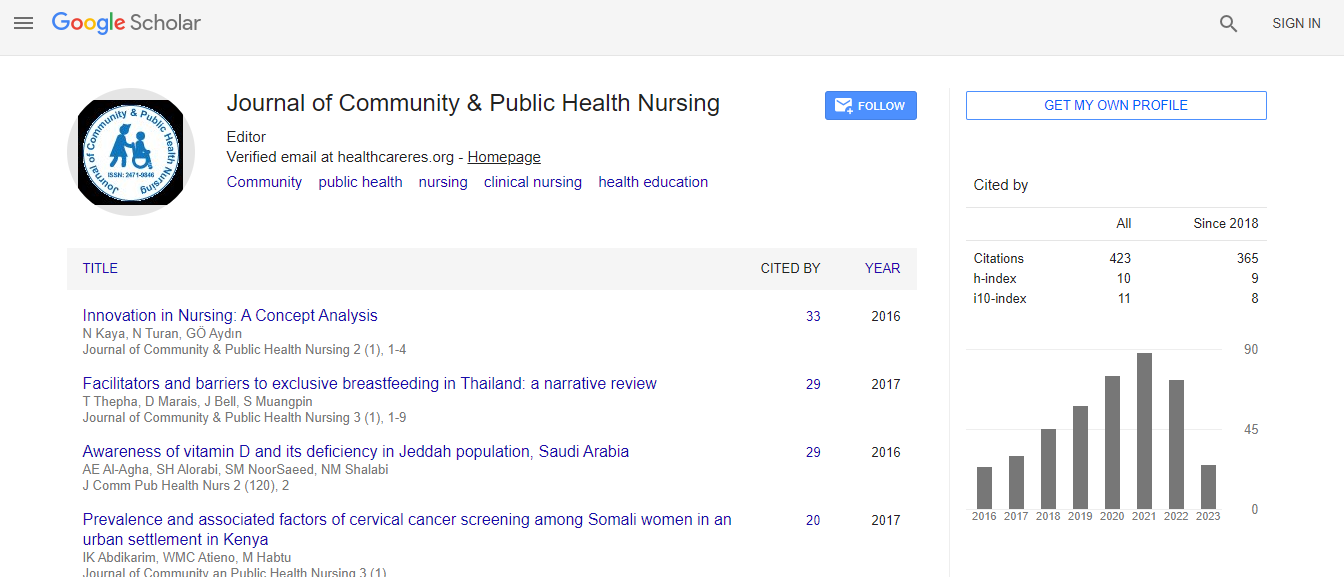Research Article
Implementing CenteringParenting in Well Child Clinics: Mothers’ Nurses’ and Decision Makers’ Perspectives
Deborah Ann McNeil*, J Cyne Johnston, Germaeline Van der Lee and Nicole Wallace
Alberta Health Services, Population Public and Aboriginal Health, Calgary, Canada
- *Corresponding Author:
- Deborah Ann McNeil
Scientific Director
Alberta Health Services Population Public and Aboriginal Health Calgary,
Alberta T2W 3N2, Canada
Tel: 1-403 616-2040
Fax: 1-403-955-0850
E-mail: debbie.mcneil@ahs.ca
Received date: July 28, 2016; Accepted date: August 22, 2016; Published date: August 29, 2016
Citation: McNeil DA, Johnston JC, der Lee GV, Wallace N (2016) Implementing CenteringParenting in Well Child Clinics: Mothers’ Nurses’ and Decision Makers’ Perspectives. J Comm Pub Health Nurs 2:134. doi:10.4172/2471-9846.1000134
Copyright: © 2016 McNeil DA, et al. This is an open-access article distributed under the terms of the Creative Commons Attribution License, which permits unrestricted use, distribution, and reproduction in any medium, provided the original author and source are credited.
Abstract
Objective: The purpose of this study was to explore perceptions of mothers, nurses and decision-makers involved in implemening CenteringParenting (CP) in two Public Health (PH) clinics.
Design: Families participated in Public Health Nurse (PHN) facilitated health assessments, parent-led discussions, and vaccination within a group space at six timepoints in their children’s first year of life. Following completion of the program, mothers, nurses, and decision-makers participated in focus groups or individual interviews to discuss their experiences in CP. Qualitative data, collected via open-ended questions, were recorded, transcribed, and analyzed. Themes and sub-themes were identified.
Results: Thirteen mothers, five nurses and four decision makers were interviewed. Mothers found the program valuable in meeting their need for peer and personal support, information, and skill development. Nurses, although enjoying the opportunity to participate in the CP model, experienced challenges with the group model. Decisionmakers identified the need for new ways of thinking.
Conclusion: The CP program provided benefits to new mothers beyond what they expected. PHN facilitators experienced conflicts with standard practice, but were committed to making it work. Addressing logistical challenges will be required prior to expansion.

 Spanish
Spanish  Chinese
Chinese  Russian
Russian  German
German  French
French  Japanese
Japanese  Portuguese
Portuguese  Hindi
Hindi 
